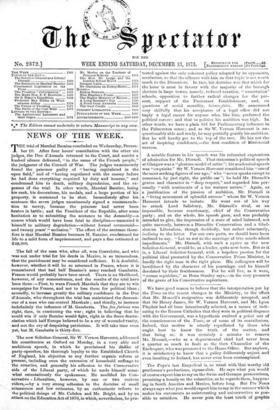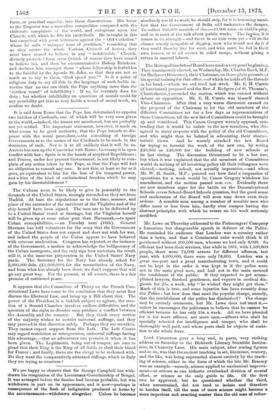The Pope's last Encyclical is, as tgual with that worthy
old. gentleman's productions, rigmarolish. He says what you would. of course expect him to say on the Swiss and German persecution; promising a homily on the calamities, as he regards them, happen- ing in South America and Mexico, before long. But Pio Nome always says what you would expect him to say in the manner which makes his statements as uninteresting and uninstructive as pos- sible to outsiders. He never puts the least touch of graphic force, or practical sagacity, into these dissertations. His letter to the Emperor was a masculine composition compared with the elaborate complaints of the world, and eulogiutus upon the Church, with which he fills his encyclicals. He inveighs in this last encyclical with great bitterness against the "Old Catholias," whom he calls "unhappy sons of perdition," remarking that as they accuse the whole Vatican Council of heresy, they must have ceased to believe in any " indefectible " Church, divinely protected from error (which of course they have ceased to believe in), and then he excommunicates Bishop Reinkens, and declares him amongst those "whose fellowship is forbidden to the faithful by the Apostle St. John, so that they are not so much as to say to them, God speed you." Is it a point of religious duty to say all this in the language of such feeble in- vective that no one can think the Pope anything more than the 'earthen vessel' of infallibility? If so, he certainly does his duty ; but whether infallibility on questions of morals could by any possibility get into so very feeble a vessel of moral truth, we confess we doubt.











































